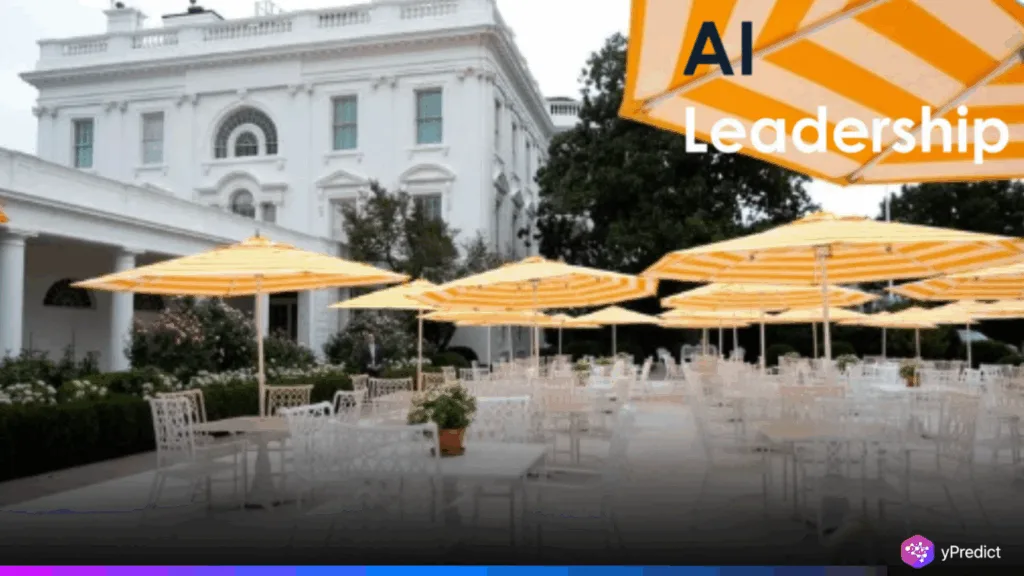
Tomorrow, the Rose Garden will provide the backdrop for a unique occasion that combines politics, technology and public fascination. First Lady Melania Trump unveiled an AI event spotlighting the trailblazers defining the future of intelligence, Sam Altman, Mark Zuckerberg, Tim Cook, Satya Nadella, Sundar Pichai, Sergey Brin, and Bill Gates. It’s also the first big White House tech event of the Trump administration, and with it taking place in the newly refurbished Rose Garden, the symbolism is inescapable. But behind the elegant setting sits a swirl of stories, absent figures, political strategies, and ethical baggage, that will frame how this meeting is remembered.
A Showcase of Power
And the Rose Garden isn’t just a backdrop here, it’s a message. By bringing it outside, Melania Trump revives it as a platform for political pageantry and technological dreams. The guest list is like a who’s who of Silicon Valley legends. Altman leads the charge in generative AI. Zuckerberg, now guiding Meta further into AI, wields both power and contentiousness. Cook is famous for his prudent yet bold strides into new tech. Nadella and Pichai keep Big Tech’s duopoly in their sights, while Sergey Brin brings old-school gravitas as Google’s co-founder. Gates, no longer at Microsoft’s helm, still appears as an oracle of philanthropy and innovation.
These numbers will stand shoulder to shoulder under the Rose Garden’s newly trimmed flowers and revamped walkways. By calling this an AI event and not a policy session, the White House allows ambiguity. Is it about leadership in AI, about projecting American competitiveness, or just about getting the biggest names in one place for the cameras? The location selection marks an aspirational signal: reinvention following acrimonious congressional battles over tech regulation, and a reminder that the American political establishment still seeks to dictate AI’s trajectory. The Rose Garden, polished and painted, becomes part of the stagecraft.
Tensions in the Shadows
Not all were called to the Rose Garden. The most obvious omission is Elon Musk. Even though he heads xAI and is an advisor in the Department of Government Efficiency, his name is absent from the program. Commentators were quick to compare it to his snub of a Biden-hosted EV summit years prior. For all his power, Musk’s fractious relationships with political leaders, on both sides of the aisle — Democratic and Republican — still keeps him hovering at the periphery of official stage-craft. His dynamic with Trump remains complicated; his omission here suggests the partnership may not be as close as many assumed.
Another subplot is Gates’ presence. His previous connections to Jeffrey Epstein still haunt, despite his dissociation. To some onlookers, his Rose Garden debut stokes ancient doubt about who gets to shape AI policy. The contrasting optics are striking: a renovated garden meant to look fresh and open, yet populated by leaders whose reputations are entangled with controversy.
This leaves tough questions about the occasion. Will the Rose Garden be the site where tech power rebranded itself, or the photo-op that eluded substance? Tomorrow’s gathering could still define how the Trump administration frames AI in 2025.
Conclusion
The Rose Garden has long been a theater for symbolism, from press briefings to historic proclamations. Tomorrow, it becomes the stage for AI’s biggest players. And the inclusion of some, exclusion of others, will define how the event is judged. The Trump administration obviously desires for this meeting to demonstrate leadership in emerging technology. But the public will see through the bouquets and oratory, balancing scandal, competition and motive. The Rose Garden can only set the stage for the message. The content will be derived from what these leaders say, and maybe even more crucially, what they don’t.






